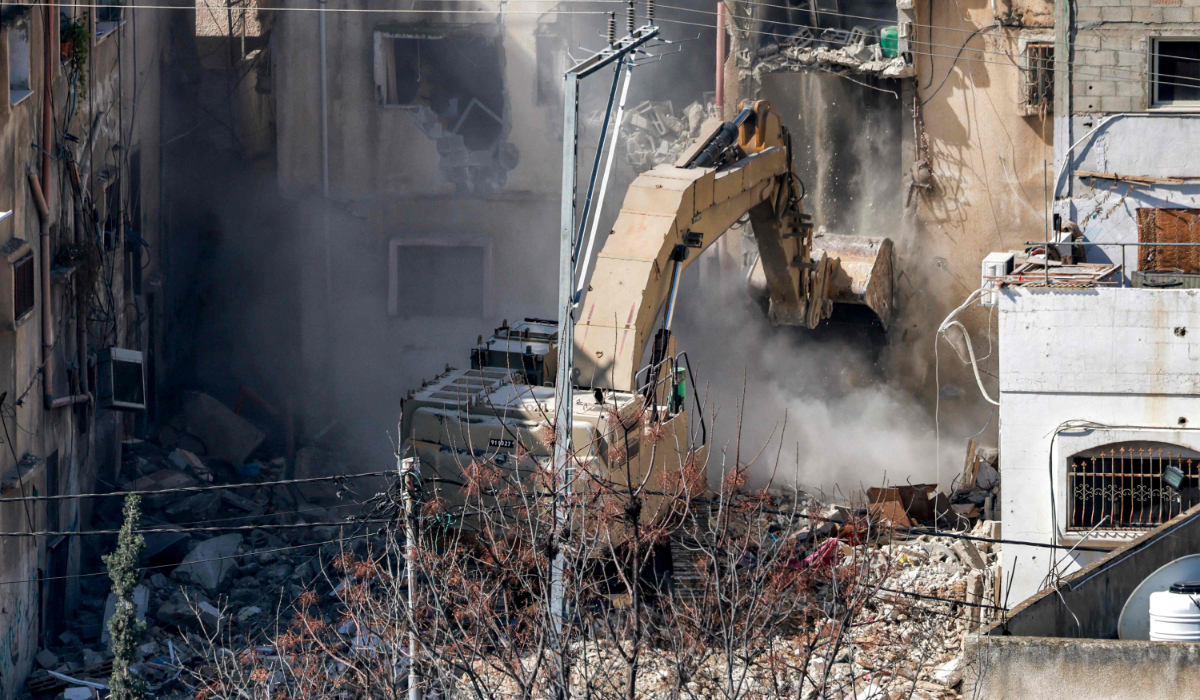DUBAI: Iran is holding parliamentary elections this Friday, yet the real question may not be who gets elected but how many people actually turn out to vote.
Widespread discontent over the cratering economy, years of mass protests rocking the country, and tensions with the West over Tehran’s nuclear program and Iran’s support for Russia in its war on Ukraine have many people quietly saying they won’t vote in this election.
Officials have urged people to cast ballots but tellingly, no information has been released this year from the state-owned polling center ISPA about expected turnout — a constant feature of past elections. Of 21 Iranians interviewed recently by The Associated Press, only five said they would vote. Thirteen said they won’t and three said they were undecided.
“If I protest about some shortcoming, many police and security agents will try to stop me,” said Amin, a 21-year-old university student who gave only his first name for fear of reprisals. “But if I die from hunger on the corner of one of the main streets, they will show no reaction.”
Over 15,000 candidates are vying for a seat in the 290-member parliament, formally known as the Islamic Consultative Assembly. Terms run for four years and five seats are reserved for Iran’s religious minorities.
Under the law, the parliament has oversight over the executive branch, votes on treaties and handles other issues. In practice, absolute power in Iran rests with its supreme leader, Ayatollah Ali Khamenei.
Hard-liners have controlled the parliament for the past two decades — with chants of “Death to America” often heard from the floor.
Under parliament speaker Mohammad Bagher Qalibaf, a former Revolutionary Guard general who supported a violent crackdown on Iranian university students in 1999, the legislature pushed forward a bill in 2020 that greatly curtailed Tehran’s cooperation with the UN nuclear watchdog, the International Atomic Energy Agency.
That followed then-President Donald Trump’s unilateral withdrawal of America from Iran’s nuclear deal with world powers in 2018 — an act that sparked years of tensions in the Middle East and saw Iran enrich enough uranium at record-breaking purity to have enough fuel for “several” nuclear weapons if it chose.
More recently, the parliament has focused on issues surrounding Iran’s mandatory headscarf, or hijab, for women after the 2022 death of 22-year-old Mahsa Amini in police custody, which sparked nationwide protests. The protests quickly escalated into calls to overthrow Iran’s clerical rulers. A subsequent security crackdown killed over 500 people, with more than 22,000 detained.
Calls for an election boycott have spread in recent weeks, including from imprisoned Nobel Peace Prize laureate Narges Mohammadi, a women’s right activist, who called them a “sham.”
“The Islamic Republic, with its ruthless and brutal suppression, the killing of young people on the streets, the executions and the imprisonment and torture of men and women, deserves national sanctions and global disgrace,” Mohammadi said in a statement.
The boycott calls have put the government under renewed pressure — since its 1979 Islamic Revolution, Iran’s theocracy has based its legitimacy in part on turnout in elections.
On Wednesday, Khamenei himself urged people to vote, describing it as a national duty. “There is no reasoning behind not voting,” he said. “It does not solve any problem of the country.”
He also said “those who express a lack of interest in the election and encourage others not to participate should think some more.”
“If the election is weak, all face harm,” he added.
Though ISPA, the polling agency, conducted election surveys in October, its results have not been made public. Figures from politicians and other media outlets suggest a turnout of around 30 percent.
In the 2021 presidential election that brought hardliner Ebrahim Raisi to power, the turnout was 49 percent — the lowest on record for a presidential vote. Millions of ballots were declared void, likely from those who felt obligated to vote but did not want to cast a ballot.
The 2019 parliament race saw a 42 percent turnout.
Separately, Iranians will also vote on Friday for members of the country’s 88-seat Assembly of Experts, an eight-year term on a panel that will appoint the country’s next supreme leader after Khamenei, 84.
Barred from that race is former Iranian President Hassan Rouhani, a relative moderate under whose term Iran struck the 2015 nuclear deal with world powers.
Some said Iran’s economic woes were the reason they are staying away from the polls. Inflation is reportedly at around 50 percent, with unemployment around 20 percent for young Iranians.
“I will not vote,” said Hashem Amani, a 55-year-old fruit merchant in southern Tehran. “In 2021, I voted for Raisi to become president in hope that similar people in the government can work together and make a better life for me. What I got in return was rocketing prices for everything.”



























